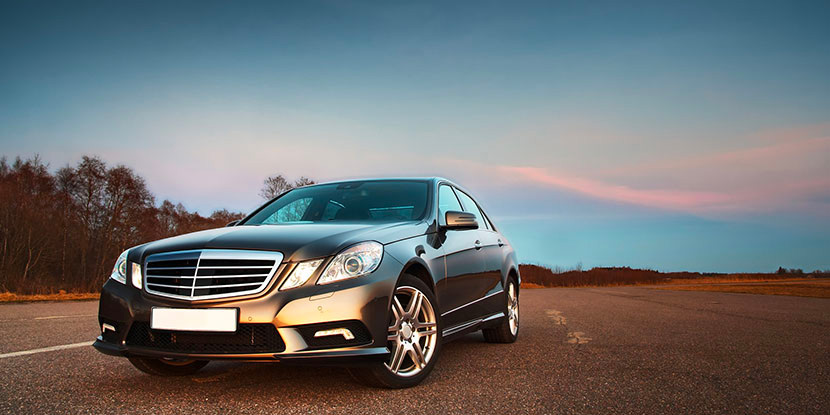Private Registration Plates

Nothing looks better than a set of shiny new alloys with a matching personal number plate. It’s a great way to pimp your wheels and add a touch of extra personalisation to your vehicle. The right private registration plate can help you to stand out from the crowds and stop passers-by in their tracks as they try to work out its relevance.
Related: Number Plate Check
Whether you opt for something related to your name, profession or even show some support for your favourite sports team, private reg plates have a lot to say about their owner. They’re so popular that at last reckoning, the private registration plate industry was thought to be worth £100m a year. That’s a whole lot of personalisation on the roads.
So we’re guessing you’re reading this guide because you’re thinking of elevating your own car with a set of new plates. In which case, sit back and relax, let us take the driving wheel as we steer you towards everything you need to know about private registration plates.
What is a private or personalised registration plate?
We’re glad you asked. It’s a great place to start and you might be surprised to discover there are four different types of personal plates in the UK. Let’s focus on those issued post-2001 which is what the vast majority are today. They consist of seven characters, two of which are letters, two of which are numbers, followed by a further three letters.
But did you know that the two numbers relate to the age of the car? So if you see a 16, it means the car was registered in 2016. While your vehicle will have been sold with an original set of plates, your new plates do need to be registered with the DVLA. If you are buying a used car that already comes with fixed private registration plates, we absolutely recommend that you carry out a full car history check, including locating the original number plates so you can run a full service history before purchasing.
Related: Car Owner Check
Are there any rules and regulations relating to private registration plates?
That’s another great question that we’ll cover off next. We previously mentioned that most of the private plates we see on the roads in the UK today were issued after 2001. To be more precise, a new set of rules was standardised back in September of 2001. Among other things, this dictated that all new plates should use a specific font. One that is easy to read and remember. Additionally as part of these new rules and regulations any stylised letters including italics have to be replaced along with bolts fixed in a position that might alter the appearance of the letters so that they are not easily legible.
Besides the above, there are also some fairly specific guidelines in terms of the physical spacing of letters on any private registration plate.
These are detailed below:
- Characters should measure 79mm tall
- Characters (except the number 1 or letter I) should measure 50mm wide
- Character strokes (the thickness of the black print) should measure 14mm
- Spacing between characters should measure 11mm
- Spacing between the age identifier and following letters should measure 33mm
- Margins to the top, bottom and side of the plate should measure 11mm
- Vertical space between age identifier and following letters should measure 19mm
What about registering your private plates?
There are a couple of steps you need to take once you’ve purchased your new registration plate before you can physically use it on your car. The most important is to register your new plates with the DVLA. You should receive a V750 document with your purchase which is a Certificate of Entitlement. You won’t be able to register your plates until this document arrives which generally takes no more than two weeks.
As soon as you’ve received your V750 you can apply to assign your new plates to your vehicle. This can be done online via the DVLA website or with a postal application. As soon as the assignment has been completed, you’ll receive a V5C form from the DVLA. Once you have this, you’re good to go and can fix your new plates to your car.
Note of caution! Don’t forget to also inform your car insurer. Failure to do so could invalidate your insurance policy.
Where can you purchase private registration plates?
You have a couple of options. Either directly from the DVLA or from a private seller.
What’s the cost of private registration plates?
The cost can vary dramatically depending upon the age and popularity/scarcity of the combination of words and numbers you want to personalise on your plate. As a general rule of thumb, the less characters, the higher the cost. Some plates run into multiple tens of thousands.
Are there any other key considerations when buying a vehicle that already has private plates?
It’s always a good idea, regardless of the make, model, age and status of the plates to first complete a comprehensive vehicle check before you buy any new car. This is the only way you can be sure that you’re not about to fall foul of a car scam.
While most sellers are genuine, a car check will provide a clear and full picture of the car’s history.
Frequently Asked Questions
How can I buy a private registration plate?
To purchase a private registration plate, you have several options. You can visit a specialised registration plate dealer who offers a wide range of personalised plates. Alternatively, you can search online through reputable registration plate websites that provide a vast selection of available plates.
When you find a plate you like, you can follow the instructions on the website to complete the purchase. It’s essential to ensure that the dealer or website you choose is registered with the Driver and Vehicle Licensing Agency (DVLA) to ensure the legality and authenticity of the registration plate.
Can I transfer a private registration plate to another vehicle?
Yes, private registration plates can be transferred from one vehicle to another. The process of transferring a private plate involves notifying the DVLA and completing the necessary paperwork. Both vehicles involved in the transfer must be registered with the DVLA and have valid MOT certificates.
There may be a fee associated with the transfer process, and specific documentation requirements may vary, so it’s advisable to consult the DVLA or a registration plate dealer for accurate and up-to-date information.
Are there any restrictions on the customisation of private registration plates?
While private registration plates allow for customisation, there are certain restrictions and guidelines that must be followed. The DVLA has specific rules in place to ensure that registration plates remain legal and readable. For example, you cannot create a private plate that makes your vehicle appear newer than it is or misrepresent its age.
Additionally, offensive or inappropriate combinations of letters and numbers are prohibited. It’s essential to familiarise yourself with these regulations to avoid any issues or potential fines.
Can I sell my private registration plate?
Yes, you can sell your private registration plate if you no longer wish to use it or if you want to transfer it to another vehicle. There is a thriving market for private plates, and many individuals are willing to purchase unique and sought-after combinations. To sell your private plate, you can advertise it through specialised registration plate websites, auctions, or private sales. Ensure that you follow the proper transfer procedures and complete the necessary paperwork to transfer ownership to the buyer legally.
How much do private registration plates cost?
The cost of private registration plates can vary significantly depending on several factors. The rarity, desirability, and uniqueness of the combination of letters and numbers can impact the price. In-demand plates that spell out common names, words, or acronyms tend to be more expensive.
Additionally, shorter plates with fewer characters are often pricier. Prices can range from a few hundred pounds to several thousand or even tens of thousands for highly sought-after plates. It’s advisable to set a budget before starting your search and compare prices from different dealers or websites to find the best deal.
Can I use a private registration plate on a leased vehicle?
Yes, it’s generally possible to use a private registration plate on a leased vehicle. However, you will need to obtain permission from the lease company before making any changes to the vehicle’s registration. Some lease agreements may have specific guidelines or restrictions regarding customisation, so it’s crucial to consult the lease company to ensure compliance. They will provide you with the necessary information and guide you through the process of transferring the private plate to the leased vehicle.
Do private registration plates affect car insurance premiums?
In most cases, private registration plates do not directly affect car insurance premiums. Insurance companies typically consider factors such as the make and model of the vehicle, the driver’s age and driving history, and the location where the vehicle is primarily used when calculating insurance premiums. However, it’s advisable to inform your insurance provider if you make any modifications to your vehicle, including adding a private plate.
While it may not impact your premiums, it’s important to ensure that your insurance policy accurately reflects the changes made to your vehicle.
Are private registration plates legal in all countries?
Private registration plates are legal in many countries, but the regulations and requirements surrounding them can vary. Different countries have their own governing bodies responsible for vehicle registration and licensing, each with its own rules and guidelines. It’s essential to familiarise yourself with the specific laws and regulations in your country regarding private plates before purchasing or displaying one on your vehicle. If you plan to travel to other countries with your private plate, it’s advisable to research and understand the regulations of those countries as well.
Can I use a private registration plate on a motorcycle or other types of vehicles?
Yes, private registration plates can be used on various types of vehicles, including motorcycles, vans, and commercial vehicles. The process of obtaining and transferring a private plate to these vehicles is similar to that of a standard car. However, it’s important to ensure that the plate adheres to the size and spacing requirements set by the DVLA or the governing body responsible for vehicle registration in your country. Additionally, some vehicles may have specific design restrictions or mounting limitations, so it’s advisable to consult the manufacturer or a registration plate dealer for guidance on displaying a private plate correctly.






